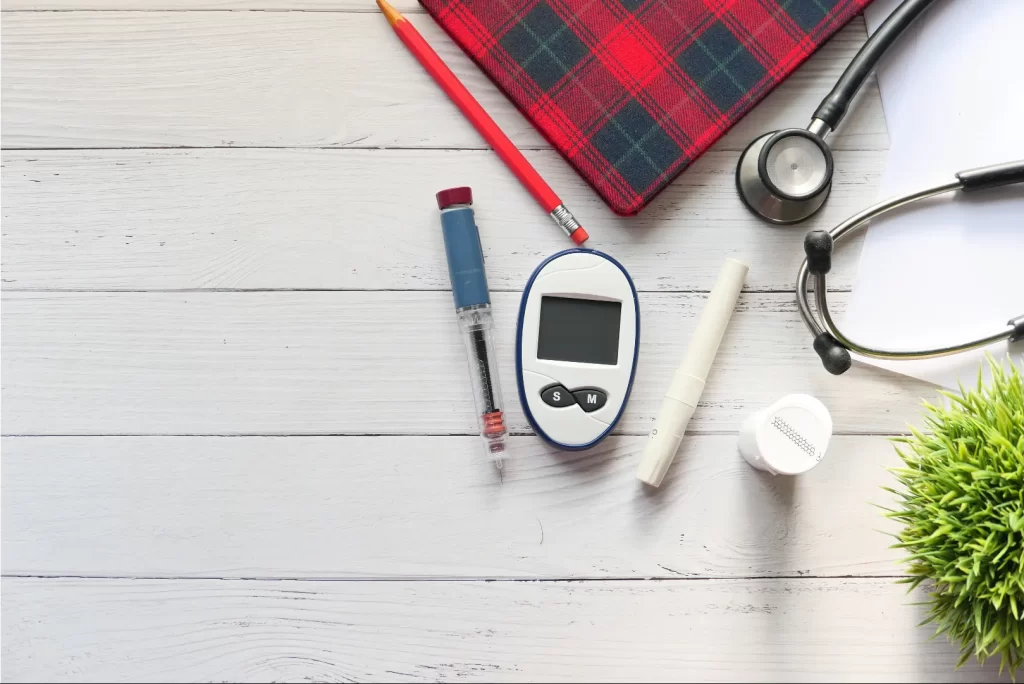Living with diabetes demands vigilance over blood sugar levels due to the looming peril of hypoglycemia. Today, we’ll delve into the ominous prospect of a hypoglycemic coma, understanding its causes, symptoms, and crucial measures for prevention and response.
As always, this articles serves as a guide. Please consult your family physician for more specified diagnosis.
The Basics of Hypoglycemic Coma
Before we start, let’s demystify the term. A hypoglycemic coma is a severe consequence of dangerously low blood sugar levels, plummeting below the normal range. This critical condition demands immediate attention, as it can lead to unconsciousness and, in extreme cases, prove fatal.
Recognizing the Telltale Signs
To begin with, the journey starts by recognizing the subtle signs of hypoglycemia. Sweating, shakiness, and palpitations are the body’s early warnings, signaling the need for a rapid response. If left unattended, these symptoms can escalate, leading to confusion, seizures, and ultimately, a hypoglycemic coma.
Causes and Triggers of Hypoglycemic Coma
Understanding the triggers behind a hypoglycemic coma is paramount in its prevention. Common culprits include an excess of insulin, insufficient food intake, or rigorous physical activity. Thus, it is imperative to maintain a delicate balance in managing diabetes to steer clear of these hazardous scenarios.
Let’s explore the specific causes and how they intertwine.
Insulin Overdose
One of the primary culprits contributing to a hypoglycemic coma is the overzealous administration of insulin. Whether accidental or intentional, this can swiftly propel blood sugar levels into a dangerous nosedive. Therefore, individuals managing their diabetes through insulin must be meticulous in their dosage to avert the looming threat of a hypoglycemic coma.
Inadequate Nutritional Intake
Another critical factor that can disrupt the delicate equilibrium is skipping meals or not consuming sufficient carbohydrates. This practice elevates the risk of hypoglycemia, pushing the boundaries closer to a potential coma. Maintaining a steady influx of glucose for energy is vital, and disruptions in this supply chain can have severe consequences.
Strenuous Physical Activity
Moreover, while exercise is a cornerstone of a healthy lifestyle, for those with diabetes, it necessitates meticulous planning. Rigorous physical activity can rapidly deplete glucose reserves, especially if not accompanied by a strategic dietary plan.
The Road to Prevention of Hypoglycemic Coma
Armed with the knowledge of causes, let’s navigate the roadmap to prevention. Vigilance is the key, and it starts with a comprehensive understanding of one’s body and its response to insulin, food, and physical exertion.
Let’s unfold the preventative measures that can avert the ominous shadow of a hypoglycemic coma.
Regular Blood Sugar Monitoring
First and foremost, frequent monitoring of blood sugar levels is the linchpin of prevention. Modern glucose monitoring devices empower individuals to keep a real-time check on their levels, allowing for prompt corrective action at the earliest signs of imbalance.
Strategic Meal Planning
Furthermore, crafting a well-balanced diet that aligns with medication and physical activity is a strategic defense against hypoglycemia. Regular meals, rich in complex carbohydrates, act as a stabilizing force, curbing the propensity for a hypoglycemic coma.
Read More: Sugar Rush: 5 Insights Into The World Of Sweeteners
Individualized Treatment Plans
Additionally, recognizing the uniqueness of each person’s diabetes management is vital. Tailored treatment plans, in consultation with healthcare providers, consider lifestyle, medication, and personal nuances, forging a personalized shield against hypoglycemic episodes.
Responding to Hypoglycemic Coma Emergencies

Despite meticulous prevention, emergencies can unfold. Being equipped with the knowledge of responsive actions can be a lifesaver.
Let’s unravel the immediate responses crucial in the face of a hypoglycemic emergency.
Rapid Glucose Administration
To begin with, in the throes of a hypoglycemic episode, swift administration of glucose is paramount. Glucose tablets, gels, or simple carbohydrates can reverse the downward spiral and avert the progression towards unconsciousness or coma.
Glucagon Injection
Moreover, for situations where an individual is unable to consume oral glucose, a glucagon injection becomes a critical intervention. This hormone stimulates the release of stored glucose, acting as a powerful antidote to impending unconsciousness.
Emergency Medical Assistance
In severe cases, where responsive measures fall short, seeking immediate medical assistance is non-negotiable. Emergency services are equipped to administer intravenous glucose, stabilizing blood sugar levels and preventing the progression into a hypoglycemic coma.
In the intricate balancing act of managing diabetes, the specter of a hypoglycemic coma underscores the importance of awareness, prevention, and swift response. Therefore, armed with insights into the causes, preventative measures, and emergency responses, individuals can navigate the complexities of diabetes with resilience and confidence.
In conclusion, let’s embrace a proactive stance, ensuring that the shadows of hypoglycemic comas remain distant, allowing a life of vitality and well-being for those managing diabetes.
Read More: Be Happier with Healthier Food: How to Stop Junk Food Cravings


